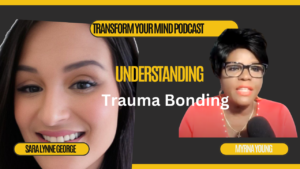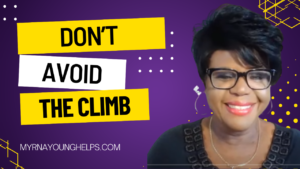Discover the path to a bigger heart by transforming lives with love and empathy with Dr. Ron Schneebaum. Author of “Bigger Hearted: A Retired Pediatrician’s Prescription for Living a Happier Life.” Explore how thinking with love and empathy transforms relationships and self-esteem. Dr. Schneebaum shares insights on cultivating empathy, managing emotions, and the power of forgiveness. Learn practical strategies for leading with love and empathy in everyday interactions. Join the conversation on unlocking happiness, healing childhood wounds, and forging deeper connections. Dive into the essence of love as the ultimate tool for personal growth and fulfillment.
Download the podcast Here:
Key Takeaways:
Leading with love and empathy enhances life satisfaction and fosters personal growth.
Cultivating compassion and empathy requires deliberate practice and introspection.
Forgiveness, both of others and ourselves, is essential for emotional healing and well-being.
The Power of Leading with Love
In the transformative journey of life, the power of leading with love and empathy cannot be understated. Dr. Ron Schneebaum, a seasoned pediatrician, underscores this as a pivotal aspect of human interaction and emotional intelligence. “When we think with our hearts,” he remarks, “we imagine another’s experience from their perspective.” This form of thinking is a blend of love and empathy, allowing us to support and elevate others.
Dr. Schneebaum illustrates this concept with personal anecdotes, including an experience as a school teacher. He recalls how he noticed a socially awkward student and consciously chose to extend compassion and understanding. This decision stemmed not from an intellectual standpoint, but from a “heart-felt compassionate thing of saying, how do I make him a part of this thing so he feels comfortable because that’ll affect his whole life.”
The broader implications of this mindset extend beyond mere kindness. When we “touch this place of Love,” as Dr. Schneebaum puts it, “We inwardly Grow.” This growth nurtures our own happiness and enriches the lives of those around us. By choosing to lead with empathy and compassion, we set the foundation for deeper connections and a more fulfilling life.
Cultivating Love and Empathy Through Practice
Love and empathy are not innate qualities assigned at birth; they are skills that require nurturing and deliberate practice. Dr. Schneebaum compares this development to improving in activities like playing tennis or golf: “In order to become more compassionate, first it’s something we naturally have as human beings.” The practice involves opening ourselves to emotions of love, emotional intelligence and compassion through intentional acts of kindness and forgiveness.
Dr. Schneebaum shares a simple yet powerful exercise to cultivate these qualities: “Think of any time you felt love and compassion, could be at a time when you were petting your cat and making your cat purr.” By immersing ourselves in those feelings, we can gradually shift our focus to the feelings themselves, apart from their circumstances, reinforcing empathy’s presence in our daily interactions.
The broader impact of embracing this exercise is profound. As society grapples with disconnection and self-centeredness, practicing empathy can ignite change. “When we act kindly,” he asserts, “then love is in there because compassion is love made practical.” By cultivating these qualities, we not only enhance our personal growth but also contribute to a more compassionate world.
The Role of Forgiveness in Emotional Healing
Forgiveness is often overlooked, yet it is vital for emotional healing and emotional intelligence. Dr. Schneebaum emphasizes the importance of forgiving others and ourselves, acknowledging that “anybody who gives you a hard time isn’t happy.” Understanding this allows us to look past hurtful behavior and connect with the shared humanity of others.
Dr. Schneebaum offers a poignant example, describing how he advised parents not to take such behaviors personally. He recounts how individuals are weighed down by past negative experiences, advising to meet them with understanding: “People meet the hurting person and they’ll think, oh I can love them enough and they’ll get past it.” Forgiveness isn’t about accepting poor treatment but recognizing the external influences shaping someone’s behavior and choosing to not hold onto the negativity.
While forgiving others can be challenging, forgiving oneself often poses a greater challenge. Dr. Schneebaum stresses that “we end up taking it personally,” further burdening ourselves with guilt and shame. Emotional freedom comes when we extend the same empathy to ourselves, acknowledging past mistakes as stepping stones toward becoming a bigger-hearted individual.
The insights by Dr. Schneebaum illuminate the path to living a happier and more fulfilled life. By embracing the principles of love and empathy, and forgiveness, we unlock the potential for genuine connections and personal growth. In recognizing the universal nature of these themes, we embark on a transformative journey toward happiness not only for ourselves but for those around us.

How to show love and empathy
1. Active Listening:
- Pay attention: Fully focus on the speaker, avoiding distractions.
- Listen without judgment: Allow the person to express their feelings without interruption or criticism.
- Be present: Show interest through eye contact, open posture, and nonverbal feedback.
- Ask clarifying questions: Ensure you understand their perspective.
- Reflect their feelings: Paraphrase their words to demonstrate understanding.
2. Emotional Connection:
- Recognize and validate their emotions: Acknowledge their feelings, even if you don’t share them.
- Use empathetic language: Employ phrases like “That sounds hard” or “I’m sorry you’re going through this”.
- Offer support and reassurance: Let them know you care and are there for them.
- Avoid offering unsolicited advice: Unless asked, focus on listening and understanding.
3. Actions of Love and Empathy:
- Be kind and compassionate: Express gratitude, apologize when needed, and offer help.
- Model empathy and respect: Show how you want to be treated by others.
- Be mindful of your words and actions: Choose your words carefully and avoid behaviors that could cause harm.
- Practice acts of kindness: Small gestures can make a big difference.
- Embrace a “putting yourself in their shoes” mindset: Try to understand their experiences from their point of view.










